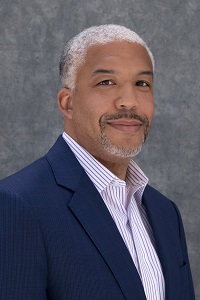AHRQ Views: Blog posts from AHRQ leaders
Long COVID is a Case Study of Our Fractured Healthcare System
MAR
21
2023

Editor’s Note: This blog post is authored by the Agency’s National Advisory Council Chair. The Council advises AHRQ’s director on Agency activities and priorities. This post does not necessarily represent the views of AHRQ.
In late January, AHRQ hosted a summit for providers treating Long COVID patients. This summit, believed to be the first of its kind, was co-hosted by Sen. Tim Kaine (D-VA), whom himself has suffered from the condition. I was privileged to attend the summit and facilitate a discussion among patients and providers about best practices, collaborations, and treatment strategies.
Long COVID—the condition that occurs when COVID-19 symptoms linger for weeks, months, or even longer—is vexing for several reasons. According to a December 2022 survey, 14.4 percent of Americans believe they have or experienced Long COVID. However, the condition is notoriously difficult to define. Symptoms vary widely, including fatigue and fever, chest pains, trouble breathing, neurologic symptoms, and many more. Some clinicians doubt that it exists or consider it no big deal. But it does exist and can be a big deal for patients.
The most important part of the summit was hearing personal stories from patients. A woman made 30 trips to the emergency department only to be told she was suffering from anxiety or an allergic reaction. The 11-year-old boy told he couldn’t have Long COVID because he wasn’t coughing—the nurse whose COVID led to severe chest pains, which she was told were panic attacks.
These stories were equal parts heartbreaking and concerning. Each represented a failure of our healthcare system to handle a new and growing challenge that requires urgent action. And they are emblematic of a healthcare system that is fractured.
I use the word “fractured” deliberately. It goes beyond “fragmented.” Our system is fragmented, of course, and we must continue to tackle that problem wherever possible. But our failure to address Long COVID has revealed severe, life-threatening gaps in care. It has shown us that clinical information systems don’t integrate adequately across provider organizations. Clinicians cannot easily communicate important information with each other, especially at critical junctures. Laws and regulations conflict. Poorly conceived payment policies lead to perverse incentives. And trust, so essential to our work, is in short supply.
Identifying and treating Long COVID is complex, which is precisely why the condition is a good case study of how our system is fractured; it isn’t straightforward.
Let’s start at the beginning. What is our understanding of the prevalence of Long COVID? How do we screen for the disease? Whom do we screen? What tools are needed for reliable diagnosis? Once the diagnosis is confirmed, what treatment strategies are available? What health outcomes can be reasonably expected and effectively communicated to patients? How does all of this get paid for in a way that preserves or improves equity in a system that already suffers from significant disparities in care?
These disparate components of care involve numerous entities, which don’t usually talk to each other very well. Patients typically end up navigating their complex journeys themselves. They’re sick, so they’re not functioning at their best and are bereft of information. Community-based organizations try to support people with Long COVID, but they’re overwhelmed and underfunded. So, what happens? Patients and their families are left to figure it out. “You’re on your own; good luck!” is a lousy way to run a healthcare system.
Members of AHRQ’s National Advisory Council have already weighed in on the quality of care issues in behavioral health, home health, hospice, and long-term care, and AHRQ Director Robert Otto Valdez, Ph.D., M.H.S.A., has discussed his vision for linking quality in all four of these areas to that of the overall system. AHRQ’s leaders and advisors recognize our system’s precarious position.
AHRQ can and should play a significant role in addressing the challenges before us. First, the Agency commands a wide respect that positions it as an appropriate convener, bringing together disparate stakeholders for essential face-to-face conversations. These are opportunities to share knowledge and disseminate best practices, and the recent Long COVID summit is a prime example.
In addition, looking forward, AHRQ can set the research agenda. The Agency has already approved 28 research grants designed to explore essential questions about healthcare delivery during the COVID-19 pandemic. And a recently published Notice of Intent has signaled the Agency’s plan to issue a Notice of Funding Opportunity to implement and evaluate new models for delivering comprehensive, coordinated, person-centered care to people with Long COVID. AHRQ anticipates publishing the application request by May and making up to $9 million in awards by September 30.
These are positive developments. Let’s keep at it. These steps forward are in AHRQ’s wheelhouse, right where the Agency can improve the American people's healthcare quality.
Our system isn’t broken beyond repair. But it’s hurting, and it’s fractured.
I am both an optimist and a pragmatist. I firmly believe that a research-driven agenda committed to equity and restoring Americans’ trust can inform, lead, cure, and care. It can help repair the fractures and point us toward a system built around whole health.
I look forward to working with AHRQ through its National Advisory Council, where we will continue to address these critical matters to make that happen.
Edmondo Robinson, M.D., M.B.A., M.S., is senior vice president and chief digital officer of the Moffitt Cancer Center, Tampa, Florida. He chairs AHRQ’s National Advisory Council.



